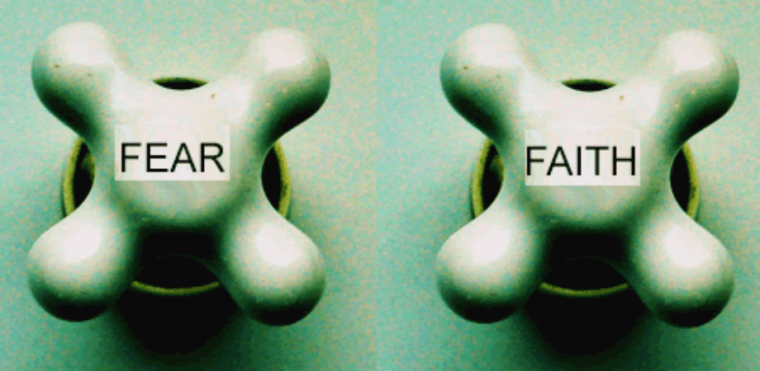Are you going to choose faith or fear? When faced with a decision, all leaders will have to make the choice.

Faith or fear? Every leader will have to face this question. Business decisions, for instance, can be driven by faith or fear. We can say that “a particular investment X will lead to benefit Y” (faith) or “if we don’t do this, we’re going to lose to the competition” (fear). Both decisions can also be driven by hard facts and can seem logical. Which should you choose?
Choosing fear
Fear can be driven by a lot of factors such as:
- lack of faith in your abilities
- negative external circumstances
- change
- possible conflict
- taking a risk
Fear makes you reactive. When you act out of fear, you zone in on the negative facts and resort to escapism, paralysis, or agression. For instance, you may know that you’re not a good speaker, so you shy away from all speaking engagements (escape). Or you stay on the job you hate, since finding a new one would mean that you would have to give up a comfortable schedule (paralysis). Or new opportunities may make you very wary, leading you to put all your defenses up and become very suspicious (aggression).
If you look at all the negative facts, there’s actually a strong basis for deciding in fear. The problem is, you only see one side of the whole story — the one that automatically closes your eyes to positive outcomes and rewarding experiences.
Choosing faith
Contrary to popular thinking, faith doesn’t have to be blind. The person who acts out of faith may recognize negative circumstances and still move forward in faith. A person who chooses faith thinks: If I become reactive and all edgy, will it accomplish anything good? I’d rather be proactive and believe that I have a chance to succeed.
In other words, people who act out of faith don’t allow the negativities to overpower their chance for success, happiness, reward, and the ideal.
How to eliminate fear and decide in faith
You might not be able to totally do away with fear, but you can drastically reduce it in your life. Here are some suggestions:
Stop being a perfectionist – the drive to succeed and become “perfect” or “the best” often leads to fear of making mistakes, which are inevitable in this life.
Embrace failure – look at failure as an opportunity to improve and grow.
Accept that you can’t control everything – sometimes, everything seems to be perfect but still goes wrong. The key is to do your best, so you won’t have regrets.
Ask for support – being alone can magnify fear. It’s easier to act in faith when you rally the support of trusted people.
Focus on your strengths – instead of focusing on the negatives that make you fear, look at your sources of strength and faith.
The next time you have to make a decision, remember that you always have the choice to move forward in faith.
